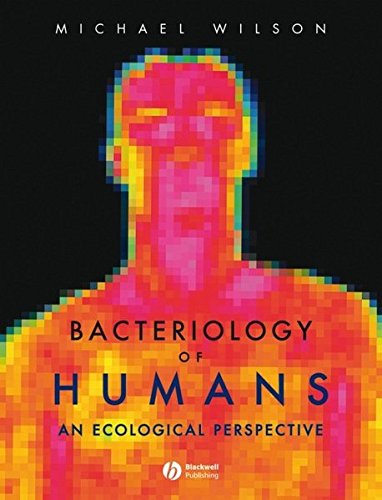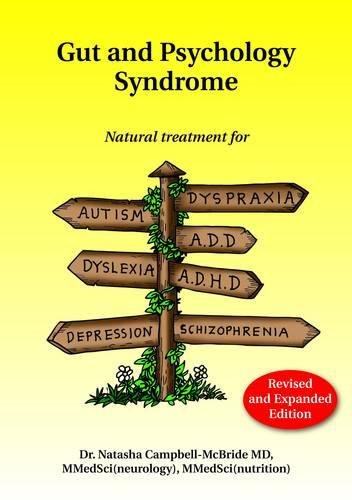Gut Microbiota
Our gut microbiota is made of tens of trillions of microorganisms. Each of us have 500-1000 species in our digestive tract. That amounts to over 3 million bacterial genes. That means there are 100-150 x more bacterial genes than human genes, weighing between 3-5 lbs. Most of those organisms are specific to each individual, while about a third are common to all of us.
"Every human life is worth the same, and worth saving. " - J.K. Rowling, Harry Potter and the Deathly Hallows
 1
1
I Contain Multitudes: The Microbes Within Us and a Grander View of Life1
 2
2
The Good Gut: Taking Control of Your Weight, Your Mood, and Your Long-term Health1
 3
3
Gut: The Inside Story of Our Body's Most Underrated Organ1
 4
4
Missing Microbes: How the Overuse of Antibiotics Is Fueling Our Modern Plagues1
 5
5
Gut Ecology1
 6
6
Honor Thy Symbionts1
 7
7
Rewild1
 8
8
Follow Your Gut: The Enormous Impact of Tiny Microbes (TED Books)1
 9
9
Bacteriology of Humans: An Ecological Perspective1
 10
10
The Mind-Gut Connection: How the Hidden Conversation Within Our Bodies Impacts Our Mood, Our Choices, and Our Overall Health1
 11
11
Gut and Psychology Syndrome: Natural Treatment for Autism, Dyspraxia, A.D.D., Dyslexia, A.D.H.D., Depression, Schizophrenia1
 12
12
The Dirt Cure: Growing Healthy Kids with Food Straight from Soil1
The Good Gut: Taking Control of Your Weight, Your Mood, and Your Long-term Health
The Good Gut: Taking Control of Your Weight, Your Mood, and Your Long-term Health Published May 3, 2016 by Justin Sonnenburg (Author), Erica Sonnenburg (Author)
Gut: The Inside Story of Our Body’s Most Underrated Organ
Gut: The Inside Story of Our Body's Most Underrated Organ Published May 24, 2015 by Giulia Enders (Author), Jill Enders (Illustrator), David Shaw (Translator)
Follow Your Gut: Microbiomes and Aging with Rob Knight – Research on Aging
(Visit: http://www.uctv.tv) Rob Knight explores the unseen microbial world that exists literally right under our noses -- and everywhere else on (and in) our bodies. He discusses the important influence the microbiome may have on the aging...
U.S. Congressional Hearing on Glyphosate
Tuesday, June 14, 2016 Powerpoint Slide Presentations Thierry Vrain 1 Stephanie Seneff 1 Stephanie Seneff 2 Anthony Samsel (pdf) Zen Honeycutt Cynthia Smith Sterling Hill Thierry Vrain 2 Jay Feldman Ben...
Culturing of female bladder bacteria reveals an interconnected urogenital microbiota
Nature Communicationsvolume 9, Article number: 1557 (2018) | Download Citation Abstract Metagenomic analyses have indicated that the female bladder harbors an indigenous microbiota. However, there are few cultured reference strains with sequenced genomes available for...
I Contain Multitudes
The Microbes Within Us and a Grander View of Life
At any given time,
only about 100-150 microbes predominate or are active. These organisms help us digest our food, produce vitamins such as vitamin B and K, keep our gut lining intact, and keep our immunity in check. Our bacterial diversity is of primary importance to prevent dysbiosis. Our diversity decreases as we age, but is also highly adaptable to our environment, especially the foods we eat or what toxins we are exposed to.
Learn more about
BACTERIA, YEAST, FUNGI, PARASITES, VIRUSES (BACTERIA, ARCHAEA, EUKARYOTES-TREE OF LIFE)
MICROBES R/T SPECIFIC DISEASES
ALL MICROBIOMES AND ECOSYSTEM
Subscribe for More Great Articles!
An imbalance can lead to bowel disorders, allergies, autoimmune disorders and even obesity. Prebiotic’s, probiotics and fermented foods are significant components to add into the diet to combat dysbiosis and bring balance to gut health and immunity.





